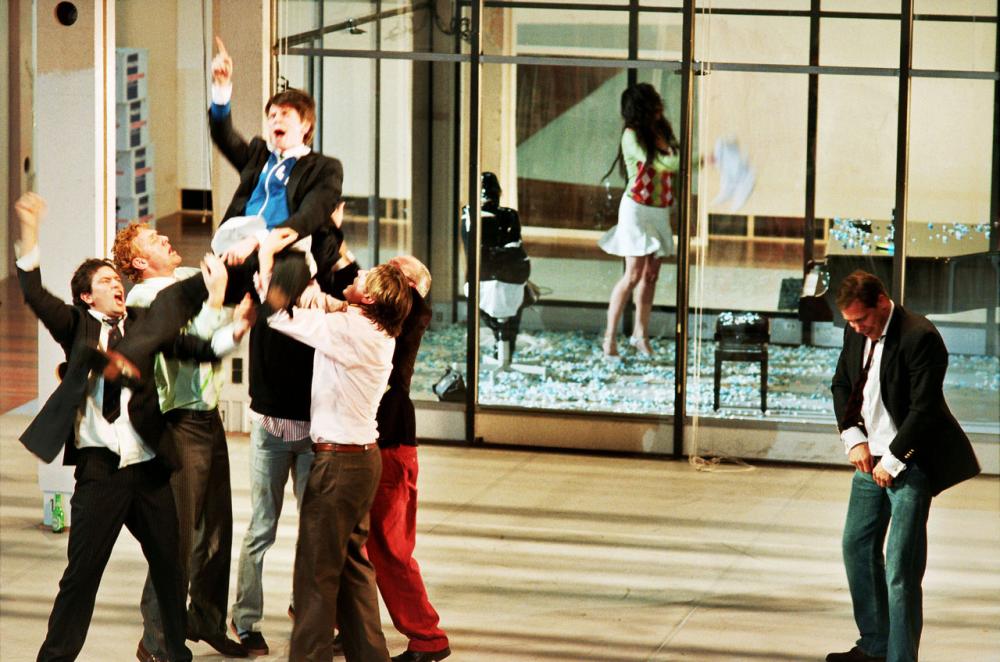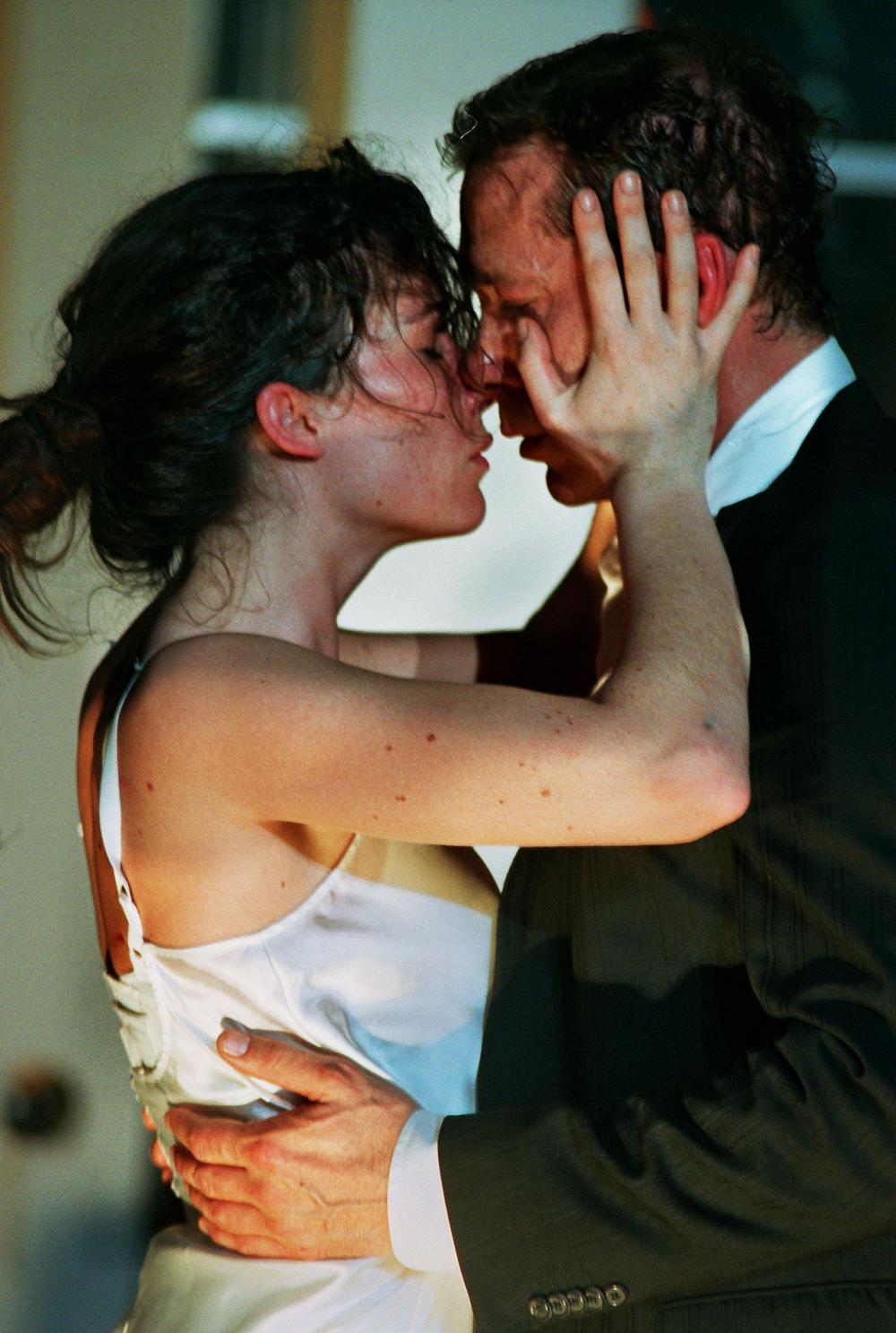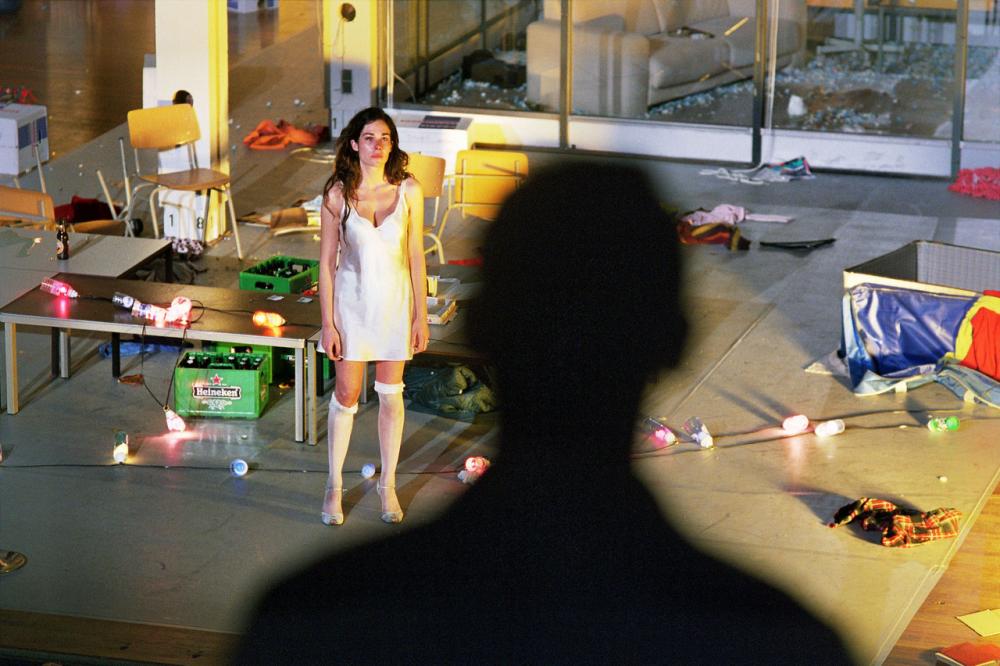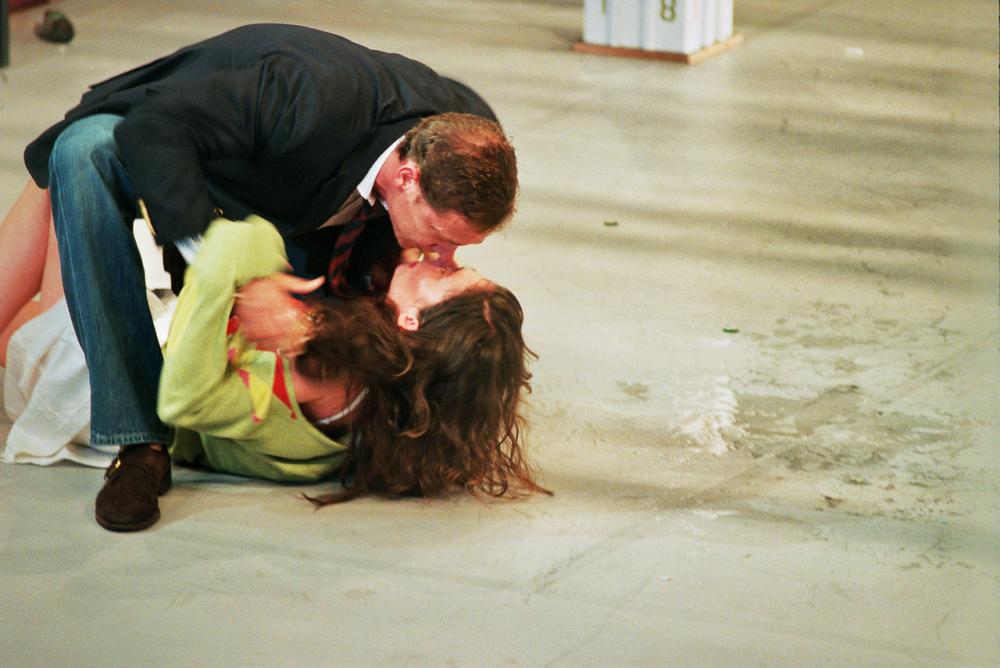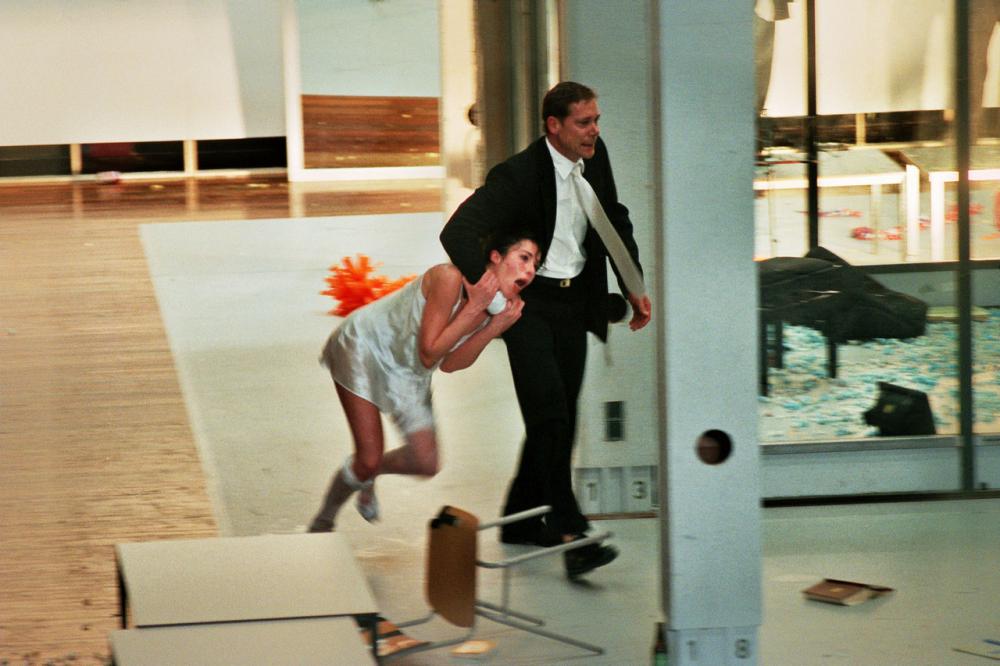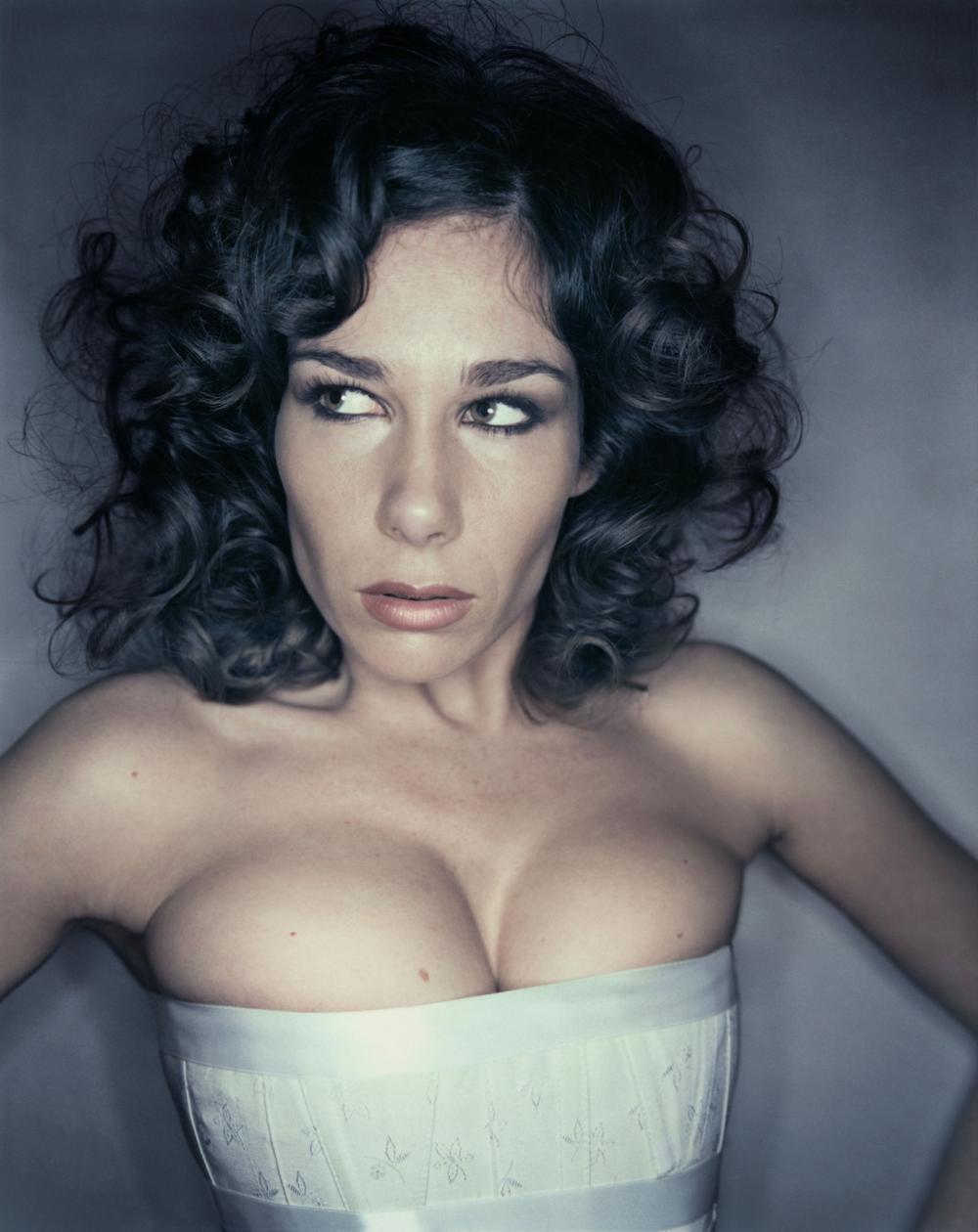Het temmen van de feeks
In the 2004-2005 season, director Ivo van Hove developed a series for Tg Amsterdam on marriage, family, and the relationship between men and women. He himself directed The Norman Conquests trilogy by Alan Ayckbourn and Scenes from a marriage by Ingmar Bergman. Peter van Kraaij presented Harold Pinter’s Bedrog (Betrayal), and Ivo van Hove concluded the whole with his vision of The Taming of the Shrew by William Shakespeare.
The Taming of the Shrew dates back to 1590 and, as far as the plot is concerned, is generally considered to show male chauvinism. The story is about two sisters: the good Bianca, who likes to conform to what society and especially her father dictates, and the rebellious Katharina, the shrew who cannot be tamed. Bianca is only allowed to marry Lucentio after a husband has been found for her older sister Katharina. But who would be willing to marry such a shrew? Then Petruchio appears and, to everyone’s surprise, after a fierce struggle he manages to tame the rebellious girl.
In his staging Ivo van Hove presents an image of what a pleasant oasis Padua, the city in which the story is set, must have been: however, in this temple of the Renaissance, this oasis of culture, life appears to be subject to strict laws and regulations. Life is determined by money and the power and status it brings. Fathers see their daughters as merchandise and in the world of servants there is also a strict hierarchy. The only time this image disappears is during carnival. Then there is an outlet for frustrations and everyone is allowed to dress up as the person they would have liked to become. Padua’s mask of tolerance and civilisation is then thrown off and everyone can give way to their desire for anarchy. It is against this backdrop that Katharina and Petruchio do battle, and this turns into love: a love between tyrant and victim, between master and servant, where they probably each find the only partner possible for them in this life.
Hafid Bouazza, the writer whose work includes the award-winning Paravion, did a new translation of the play for Tg Amsterdam.
texte William Shakespeare
mise en scène Ivo van Hove
traduction Hafid Bouazza
avec Roeland Fernhout, Fred Goessens, Hans Kesting, Marijn Klaver, Hugo Koolschijn, Alwin Pulinckx, Halina Reijn, Karina Smulders, Leon Voorberg, Benjamin de Wit, Inge Van den Ende
scénographie, concept lumières Jan Versweyveld
concept son Marc Meulemans
concept costumes Lies Van Assche
dramaturgie Alexander Schreuder
